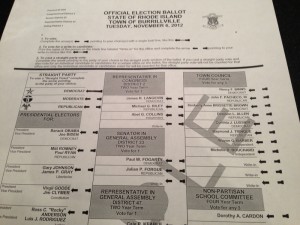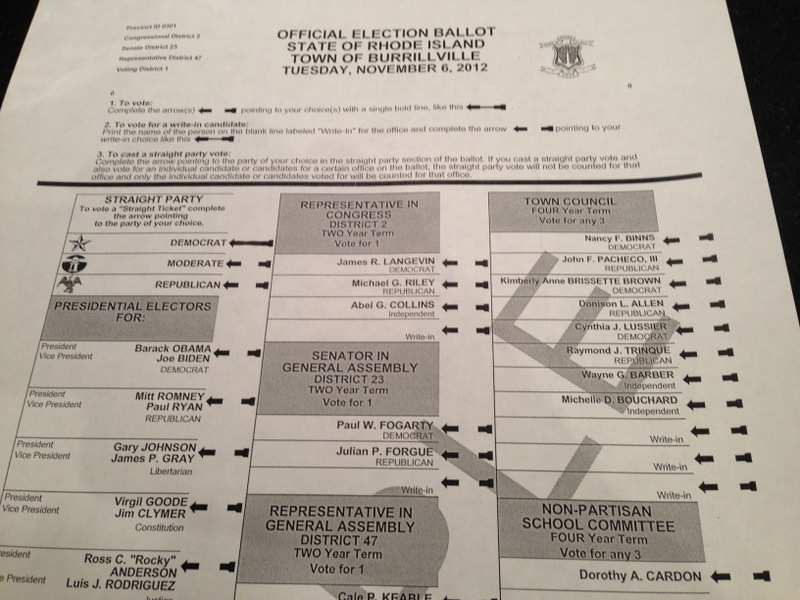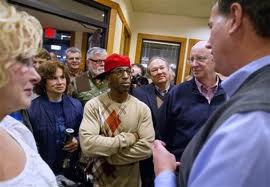
All across America, Democrats – and quite frankly courts, too – are waking up to the oppressive reality voter ID laws represent for too many minorities, the poor and the elderly. Judges in Arkansas, Wisconsin and other states have almost systematically ruled against voter ID provisions and well-respected Washington Post political scribe Chris Cilliza recently blessed the issue with this post.
The president of the United States even weighed in last month. “I am against requiring an ID that millions of Americans don’t have,” he said. “That shouldn’t suddenly prevent you from exercising your right to vote.”
Not Rhode Island, though. We the only blue state (along with Hawaii) with such a law, and we seem more content with it than some pretty red states. The Senate had its hearing (you can watch all sorts of good government groups and equal rights activists testify against it here) but the voter ID law seems pretty safe here in spite of the widespread liberal and legal opposition.
That’s not to say there isn’t the political will for state legislators to address election law this session.
The anti-master lever bill passed the House last night 70 to 0. This puts amazing pressure on the Senate to do likewise – note the activist role the Providence Journal is taking by urging readers to call legislators.
The master lever, or straight party voting, doesn’t serve democracy well and should go. Ken Block in particular deserves great praise for leading the charge against it. I’d say it’s solid evidence he can effectively use a bully pulpit to affect political change, and that’s what he says he wants to do as governor.
To that end, I kinda find myself wishing voter ID laws hurt Ken Block supporters, too. Then he may have taken me up on my offer to tackle both voting rights issues. Because just as we should ensure the ballot is as straightforward as possible, we should also ensure that everyone has access to a ballot.
Rhode Island wasn’t mentioned in the Washington Post’s list of 13 states “to watch” on voting rights despite the big push here to end straight party voting. Maybe we could gain some positive national attention on a good government issue if we did away with both the master lever AND voter ID this year?




